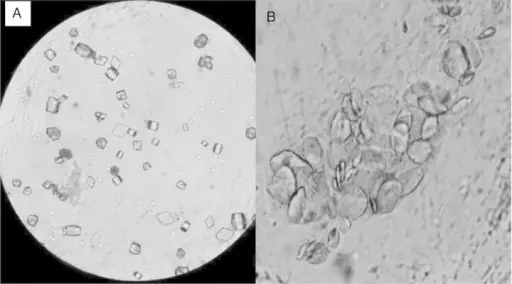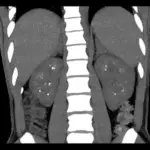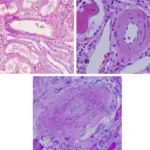Urate nephropathy is the deterioration of the kidney function due to hyperuricemia disorders.
What is the Pathology of Urate Nephropathy?
The pathology of urate nephropathy is:
-Etiology: The cause of urate nephropathy is hereditary enzyme disorder, HGPRT deficiency, hyperuricemia, leukemia treatment, and conditions such as gout.
-Genes involved: Unknown.
-Pathogenesis: The sequence of events that lead to urate nephropathy follows the uric acid deposition in the kidney.
-Morphology: Not applicable.
-Histology: Stone or nidus formation.
How does Urate Nephropathy Present?
Patients with urate nephropathy typically slightly high in males present at age range of any age. The symptoms, features, and clinical findings associated with urate nephropathy include gout, ureteral obstruction, and oliguria.
How is Urate Nephropathy Diagnosed?
Urate nephropathy is diagnosed through laboratory study- urate levels in the plasma> 15 mg/dL indicate hyperuricemia, urinalysis and elevate serum uric acid.
How is Urate Nephropathy Treated?
Urate nephropathy is treated by medical therapy- allopurinol. Surgical care in case of uric acid stones.
What is the Prognosis of Urate Nephropathy?
The prognosis of urate nephropathy is fair depending on the underlying cause.



